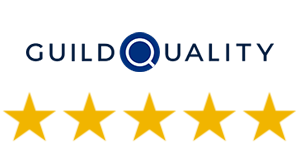Mold can quietly harm your health and Huntsville home. Millions of homes in the U.S. have mold, often hidden. It’s key to spot the signs to keep your family safe.
Look out for mold spores, dark spots, and musty smells. Allergic reactions and breathing problems can also hint at mold. These signs can be easy to miss, so stay alert.
Key Takeaways
- Mold infestation can be hidden and not easily detectable.
- Visible mold spores and dark spots on surfaces are common signs.
- Musty smells and allergic reactions can indicate mold presence.
- Respiratory issues can be a health consequence of mold exposure.
- Early detection is key to a healthy home.
Common Signs and Indicators of Huntsville Household Mold
Finding mold early is key, and knowing its signs can stop health problems. Homeowners should watch for signs of mold in their homes.
Visible mold spores or growth are clear signs. But mold can hide, so it’s important to look for other signs. Some common signs include:
- Dark spots or patches on walls, ceilings, and other surfaces
- Musty odors, which can be a strong indicator of mold presence
- Allergic reactions or respiratory issues among occupants
- Water stains or leaks, which can be a precursor to mold growth
Knowing these signs is key for early detection. For example, a musty smell is often one of the first signs of mold. This smell is more noticeable in poorly ventilated areas.
Musty Odors and Respiratory Issues in Huntsville
Musty odors are not just annoying; they can mean mold is growing. Mold releases spores into the air, causing a musty smell. These spores can also cause respiratory problems, making asthma worse.
Respiratory issues from mold can be mild or severe. Some common problems include:
- Coughing and wheezing
- Shortness of breath
- Irritation of the eyes, throat, and lungs
Huntsville homeowners should quickly address musty odors and health issues. This action can stop mold from growing more and reduce health risks.
In summary, knowing the common signs of household mold is important for a healthy home. By spotting these signs early, Huntsville homeowners can fix mold problems and prevent them from coming back.
How Do You Know If You Have Mold in Your Huntsville House?
Knowing where mold grows is key to catching it early. Mold loves damp, dark, and poorly ventilated spots in your home.
Basements, bathrooms, and kitchens are common places for mold. Basements are damp because they’re below ground. Bathrooms, with bad air flow, can have mold near showers and sinks.
Kitchens, too, are at risk, mainly around sinks and fridges. Moisture can build up there. Also, mold might grow near plumbing, HVAC systems, and windows because of leaks or condensation.
Key Areas to Inspect for Mold
Huntsville homeowners should check these spots for mold:
- Basements and crawlspaces for dampness and water leaks.
- Bathrooms and kitchens for moisture around fixtures and appliances.
- Windows and doors for condensation.
- HVAC systems and plumbing for leaks or damage.
- Attics for moisture, if there are roof or ventilation problems.
By inspecting these areas and knowing mold signs, you can stop it before it starts. Regular checks and good air flow help keep mold away.
Mold Testing and Confirmation Methods
Mold testing is key to finding and fixing mold problems in your Huntsville home. If you think there’s mold, it’s important to confirm it and know how bad it is.
There are many ways to test for mold, like hiring a pro or using DIY kits. Professional services use special tools to find mold. They give detailed reports on what kind and how much mold there is.
Professional Mold Testing Services in Huntsville, AL
Professional mold testing has many benefits, like finding mold accurately and getting detailed reports. These services usually include:
- Visual inspections to find where mold might be
- Air sampling to check for mold spores in the air
- Surface sampling to get mold samples from surfaces
DIY Mold Testing Kits
DIY mold testing kits are a quick and affordable option. They come with materials and instructions to collect samples. Then, you send them to a lab for testing.
But, DIY kits have their limits. They might not give as much detail as pros, and there’s a chance of wrong sampling or results.
Addressing Moisture Issues in Alabama
No matter the testing method, fixing moisture problems is key. This means finding and fixing leaks, improving air flow, and lowering humidity.
To stop mold from coming back, do these things:
- Check your home often for water damage or moisture
- Use exhaust fans in kitchens and bathrooms to cut down humidity
- Make sure water drains well around your home’s base
Knowing about mold testing and confirmation helps Huntsville homeowners tackle mold problems and stop them from coming back.
Conclusion: Addressing Mold Problems and Prevention Strategies
To tackle mold in your Huntsville home, you need a solid plan. This includes cleaning up, preventing, and keeping up with maintenance. Knowing the signs of mold and how to spot it is key to protecting your family and home.
Preventing mold means fixing moisture problems, using good ventilation, and keeping things clean. Lowering humidity and improving air flow can help stop mold from growing. Regular checks and quick action when mold is found are vital for keeping your Huntsville home mold-free.
By using these strategies, you can make your home a healthier place. This way, you avoid the high costs of fixing mold damage. Taking steps to prevent mold makes your home safer and healthier for everyone.
Restore with Confidence — North Alabama Restorations
When water, fire, mold, or storm damage affects your Alabama home or business in North Alabama, trust our fast, expert response and professional cleanup. We’re available 24/7, delivering compassionate service and free damage assessments. Receive a free estimate, contact us today!






